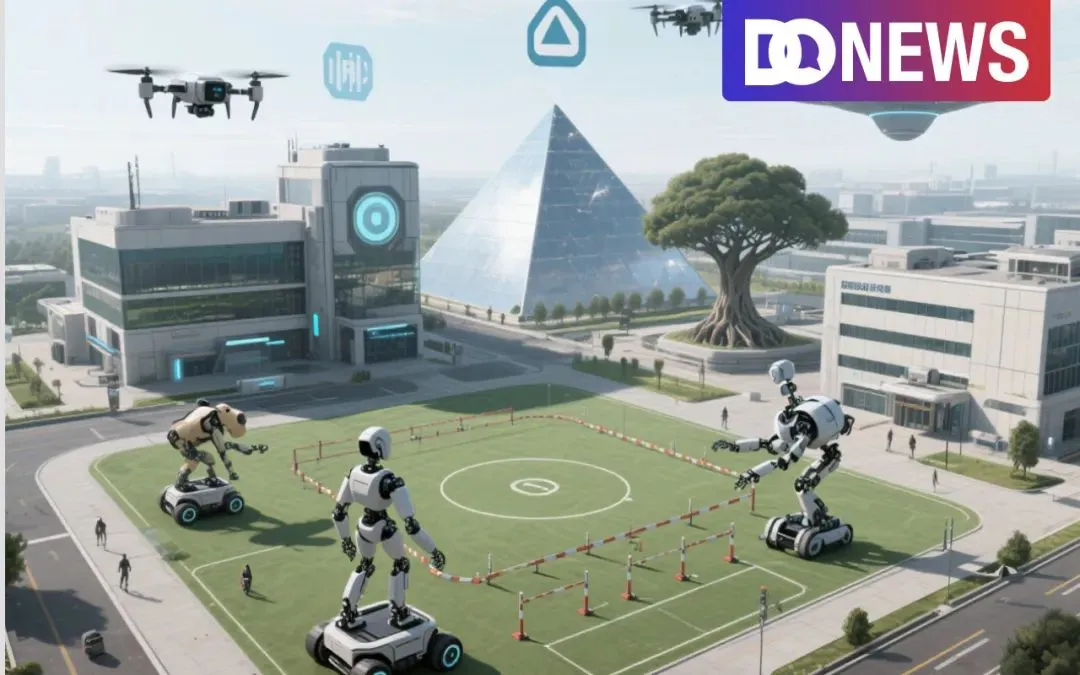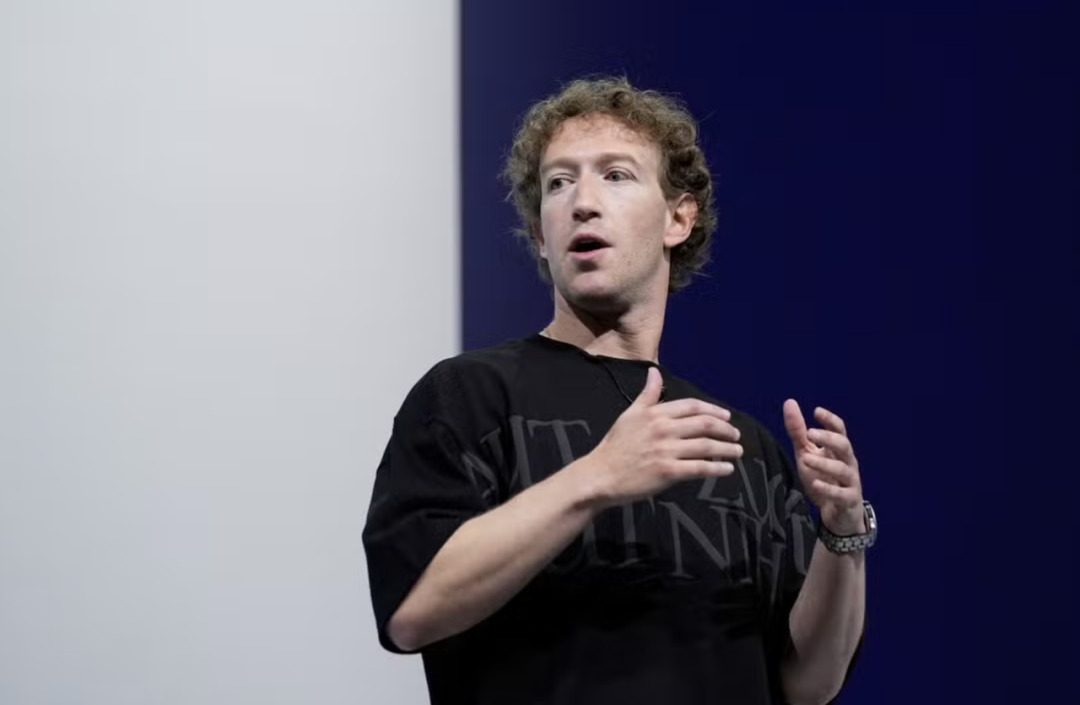Keywords:Google AI energy consumption, Gemini, AI scientists, Embodied intelligence, AI referees, DeepSeek, AI bubble, Google AI energy consumption data first disclosed, Agents4Science academic conference, Application of AI in gymnastics judging, DeepSeek compatible with domestic chips, Impact of AI on vocational education
🔥 Spotlight
Google Discloses AI Energy Consumption Data for the First Time: Google has for the first time disclosed the energy consumption data for each query made using its Gemini application, with a median query consuming 0.24 watt-hours of electricity, along with corresponding water consumption and carbon emissions. This marks a significant breakthrough in AI energy transparency from a major tech company, providing much-needed insights for researchers and analysts and contributing to discussions on AI’s sustainable development. (Source: MIT Technology Review)

AI Scientist Conference: AI-Dominated Research: Professor James Zou of Stanford University initiated the “Agents4Science” academic conference, where all research, writing, reviewing, and presentation tasks were completed by AI, aiming to explore AI’s potential as an autonomous scientist. The conference sparked discussions on AI’s creativity, error rates, and its impact on opportunities for young researchers, though proponents believe AI scientists can accelerate scientific discovery. (Source: MIT Technology Review)
AI in Gymnastics Judging Sparks Controversy: The 2023 World Artistic Gymnastics Championships saw the first-time use of an AI judging system across all apparatus. Proponents argue that AI can enhance objectivity, fairness, and transparency, eliminating bias. Opponents, however, worry that AI could diminish the artistry and narrative aspects of gymnastics as a subjective sport, and replace human judges. (Source: MIT Technology Review)

🎯 Trends
AI Giants Seek Non-Web Scraped Data: Major AI companies are actively seeking real-world data that cannot be scraped from the internet, aiming to improve their models’ accuracy and explore new application scenarios. This trend reflects the urgent need for high-quality, diverse data for AI models, signaling a shift in data acquisition strategies. (Source: Rest of World)
DeepSeek AI Model Compatible with Domestic Chips: DeepSeek announced that its new AI model is compatible with China-made chips. This move holds significant importance amid current global chip supply chain tensions and geopolitical contexts, indicating China’s progress in AI chip self-sufficiency and ecosystem development, which is expected to promote the widespread adoption and application of domestic AI hardware. (Source: FT)
Apple’s Siri May Integrate Google’s Gemini: Bloomberg reports that Apple is considering integrating Google’s Gemini AI model into its Siri voice assistant to enhance Siri’s intelligence and functionality. This potential collaboration would mark a deep integration between two tech giants in the AI field and could reshape the smart assistant market landscape. (Source: The Verge)
Elon Musk’s xAI Forms “Macrohard” to Focus on AI Software: Elon Musk’s xAI is forming a pure AI software company named “Macrohard,” aiming to fully automate software development through AI. While the name carries a playful connotation, the project seeks to explore AI’s ultimate potential in software engineering, foreshadowing a new paradigm for AI-driven software development. (Source: The Verge)
Internet Giants Accelerate Layout in Embodied AI: Nvidia’s Jensen Huang proposed embodied AI as the next wave of AI, and internet giants like Meituan, JD, Tencent, Alibaba, and ByteDance are all vying for this track through investment, in-house R&D, and ecosystem partnerships. Meituan focuses on local life services, JD on retail logistics, Tencent empowers through its platform, while Alibaba/Ant Group combines investment with in-house R&D. With policy support, the embodied AI industry is entering a period of rapid development. (Source: 36氪)

🧰 Tools
DeepCode: Multi-Agent Code Generation Platform: HKUDS launched DeepCode, an open multi-agent programming platform that supports converting research papers to code (Paper2Code), generating web pages from text (Text2Web), and backend code from text (Text2Backend). This tool aims to automate algorithm implementation and software development processes through intelligent orchestration, efficient memory management, and an advanced CodeRAG system. (Source: GitHub Trending)

AI Assists in Household Management: An increasing number of households are leveraging AI tools to manage daily affairs, such as AI-powered meal planning and home applications. These tools simplify household operations, reduce disputes over daily chores, and enhance the efficiency and convenience of family life through intelligent means. (Source: Washington Post)
💼 Business
Musk Reportedly Urged Zuckerberg to Buy OpenAI: Elon Musk reportedly attempted to persuade Mark Zuckerberg to acquire OpenAI, but the offer was rejected. OpenAI is currently investigating Meta’s role in this matter. This incident reveals the complex competitive and cooperative relationships among AI giants, as well as potential industry consolidation trends. (Source: Insider, TechCrunch, FT)
Meta Halts AI Hiring Amid Cost Pressures: After investing heavily in the AI talent war, Meta suddenly announced a freeze on AI department hiring and a reorganization of its structure. This move is interpreted as a response to Wall Street’s concerns about the returns on AI spending and a strategy to integrate its internal “super intelligence labs.” Underperformance of the Llama model and executive departures also accelerated Meta’s strategic adjustments. (Source: 36氪)

🌟 Community
AI Bubble Theory and AGI Expectations: Angel investor Bhavya Kashyap warns that the current AI boom could form a “dangerous bubble” if Artificial General Intelligence (AGI) fails to materialize as expected. This view reflects market concerns about over-hyping AI technology and a cautious attitude towards the actual timeline for AGI’s deployment. (Source: Insider)
Mo Gawdat Predicts an “AI Dystopian” Transition Period: Former Google executive Mo Gawdat predicts that the world will experience an AI-induced “dystopian” transition period over the next 12-15 years, during which seven aspects of human life, including freedom, responsibility, and economy, will be redefined by AI, potentially leading to the replacement of most white-collar jobs. He believes that despite initial chaos, it will ultimately lead to an AI utopia, with the key being humanity’s ability to shift its mindset. (Source: 36氪)

💡 Other
AI’s Impact and Transformation Challenges for Traditional Vocational Education: Zhonggong Education, once known as the “first stock for civil service exam prep,” is facing refund difficulties and a cash flow crisis, with its traditional “agreement class” model becoming unsustainable. Concurrently, the AI wave is reshaping the vocational education sector. Zhonggong Education is attempting to launch an AI employment learning machine to align with its strategic transformation, but faces high technology implementation costs and long-term market education challenges, with its financial situation remaining strained. (Source: 36氪)

